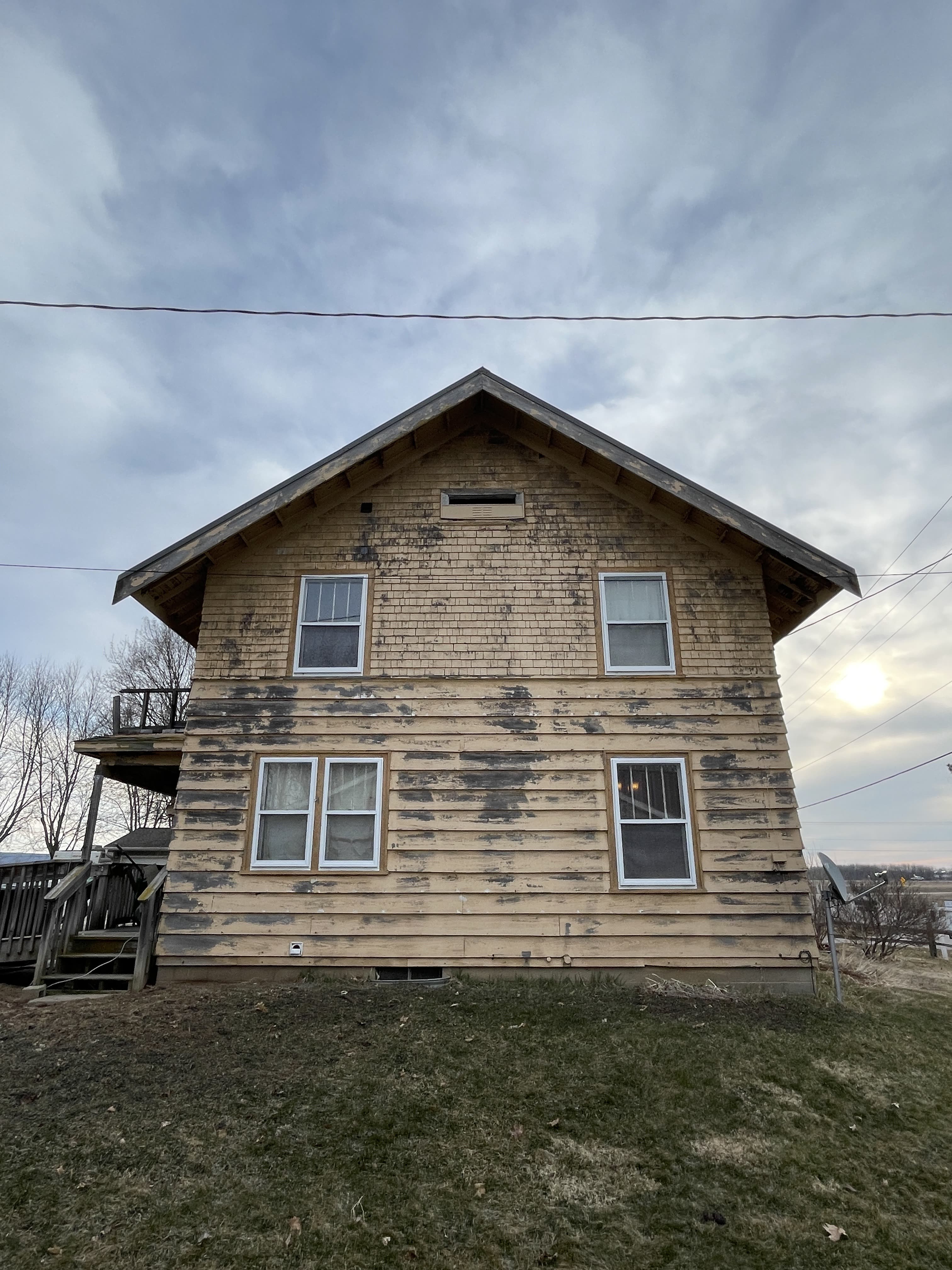15
Avoiding Foreclosure in Wisconsin: All you Need to Know
Facing foreclosure can be one of the most challenging periods in a homeowner’s life, filled with uncertainty and stress. If you’re in this situation, know that you’re not alone, and there are options available to you. This guide aims to address your concerns, answer your pressing questions, and offer solutions to help you navigate this difficult time with dignity and hope.
What is Foreclosure?
Foreclosure is the legal process by which a lender takes possession of a property when the homeowner fails to make mortgage payments. It typically begins after the homeowner misses several months of payments, although the exact timeline can vary depending on the lender and state laws.
Types of Foreclosure
Judicial Foreclosure: This process requires the lender to file a lawsuit in court. The homeowner will receive a summons and has the opportunity to contest the foreclosure. If the court rules in favor of the lender, the property is sold at a public auction.
Non-Judicial Foreclosure: This process is quicker and does not involve the courts. Instead, the lender follows a series of steps outlined in the mortgage contract, including providing required notices to the homeowner before selling the property at auction.
Can I Sell a Foreclosure House in Wisconsin?
Yes, selling a foreclosure home is possible in Wisconsin. Homeowners have the opportunity to sell their property up until the point of foreclosure sale or auction. This process allows you to manage the sale more proactively and potentially avoid the consequences of a foreclosure on your credit report. Have any questions of forcelosure? Schedule a meeting with our team here...
What Type of Foreclosure Allows for a Property to Be Sold?
Wisconsin typically follows judicial foreclosure proceedings, where the lender must go through the court to foreclose on a property. This process allows homeowners the chance to sell their property before the foreclosure is finalized, offering a critical window to manage the situation.
Can I Sell a House Before Foreclosure?
Absolutely. Selling your house before the foreclosure process is finalized is known as a pre-foreclosure sale. This can be a strategic move to prevent a foreclosure from appearing on your credit report, potentially saving you from a significant credit score drop.
Can I Sell a House Before Foreclosure in Wisconsin?
Yes, in Wisconsin, homeowners can sell their house before the foreclosure process concludes. This option often involves working closely with the lender to ensure the sale proceeds go toward the mortgage balance.
What Does Short Sale Mean?
A short sale occurs when a homeowner sells their home for less than the amount owed on the mortgage with the lender’s approval. This option is considered when the homeowner cannot afford their mortgage payments and the home's market value has decreased.
How Many Mortgage Payments Can I Miss Before Foreclosure?
Foreclosure can begin after a homeowner misses three to six mortgage payments. Lenders typically issue a notice of default after the third missed payment, starting the formal foreclosure process.
Which is the First Priority When a Property is Foreclosed and Sold?
The priority when a property is foreclosed and sold is paying off the mortgage balance and any associated legal fees. Lenders aim to recover the amount owed on the property through the sale.
What is a Sheriff Sale in Wisconsin?
Sheriff's sales mark the final stage of the foreclosure process. Sheriff's sales are open outcry sales with no sealed bids. The successful bidder, upon full payment and judicial confirmation, will receive a sheriff's deed.
When a property is sold through Sheriff Sale (Foreclosure), in which order the payments are made?
In a foreclosure sale, the order of payments typically follows this hierarchy:
1. Mortgage balance and legal fees.
2. Second or third mortgages and home equity lines of credit.
3. Homeowner association (HOA) fees.
4. Any remaining liens on the property.
5. Homeowners Equity
What Happens if Any Money Remains from the Foreclosure Sale After Paying Off Debt?
If there are surplus funds after paying off the mortgage and other debts, the remaining money goes to the homeowner. This scenario can provide some financial relief despite the foreclosure.
How Long After Default Does the Foreclosure Process Begin?
In Wisconsin, the foreclosure process can begin as soon as 120 days after the first missed payment. However, lenders may allow more time for homeowners to catch up on payments before taking legal action.
What Type of Foreclosure Allows a Property to Be Sold by Court Order After Sufficient Public Notice?
Judicial foreclosure involves selling a property under court order after the homeowner has been given sufficient public notice.
What Are the Two Primary Categories of Foreclosure?
The two primary types are judicial and non-judicial foreclosures, depending on whether the process involves court intervention.
What Are the General Types of Foreclosure Proceedings?
Foreclosure proceedings can be judicial, non-judicial, or through a special process like a short sale or deed in place of foreclosure.
What Action Could Temporarily Stop a Foreclosure?
Filing for bankruptcy can temporarily halt foreclosure proceedings, providing homeowners time to reorganize their finances.
Which Type of Foreclosure is Faster?
Non-judicial foreclosures are typically faster than judicial ones since they don't require court proceedings.
What is Known as a Friendly Foreclosure?
A friendly foreclosure involves a cooperative agreement between the lender and borrower to avoid a contested legal process, often through a deed instead of foreclosure.
How Long Does It Take to Recover from Foreclosure?
Recovery from foreclosure can take several years. It involves rebuilding your credit score and financial stability.
How Does the Foreclosure Process Work in Wisconsin?
In Wisconsin, foreclosures are generally judicial, requiring a court process that includes notification to the homeowner and a possible sale of the property.
Can I Refinance My Home to Avoid Foreclosure?
Refinancing might be an option to avoid foreclosure if you can secure a new mortgage agreement that is more manageable based on your financial situation.
How Many Mortgage Payments Can You Defer?
Loan modification programs may allow you to defer a few payments, but this is highly lender-specific.
What is the 43% Mortgage Rule?
The 43% rule is a guideline suggesting that your total debt payments should not exceed 43% of your gross monthly income to qualify for a mortgage.
What is the Debt Relief Act?
The Mortgage Forgiveness Debt Relief Act allows homeowners to exclude income from the discharge of debt on their principal residence.
Who Qualifies for Debt Forgiveness?
Homeowners whose mortgage debt was partly or entirely forgiven may qualify under specific programs like the Mortgage Forgiveness Debt Relief Act.
Foreclosure Process in Wisconsin
In Wisconsin, foreclosure is generally a judicial process, meaning it goes through the court system. Here are the steps:
Missed Payments: The process usually begins after a homeowner misses three to six months of mortgage payments.
Notice of Default: The lender sends a notice of default, informing the homeowner of the missed payments and the intent to foreclose.
Foreclosure Complaint: If the debt is not settled, the lender files a foreclosure complaint with the court.
Summons and Complaint: The homeowner receives a summons and complaint, which they can respond to, potentially contesting the foreclosure.
Court Hearing: If the homeowner does not respond or loses the case, the court may issue a judgment of foreclosure.
Redemption Period: Wisconsin allows a redemption period during which the homeowner can pay off the debt to reclaim the property.
Foreclosure Sale: If the debt is not paid, the property is sold at a public auction.
Eviction: Post-sale, the homeowner must vacate the property. The timeline for eviction varies but can extend for several months.
Avoiding Foreclosure
Communication: The most critical step is to communicate with your mortgage servicer as soon as you anticipate payment difficulties. Options include:
Refinancing: Obtain a new loan with better terms to pay off the existing mortgage.
Loan Modification: Adjust the terms of your current loan to reduce monthly payments.
Forbearance: Temporarily pause or reduce payments.
Deed-in-Lieu of Foreclosure: Voluntarily transfer the property to the lender to avoid foreclosure proceedings.
HUD-Approved Counseling: Seek free or low-cost assistance from HUD-approved housing counseling agencies to explore your options and develop a plan.
Impact on Credit and Future Homeownership
Foreclosure significantly impacts your credit score and remains on your credit report for seven years. However, it's possible to buy a home again after a foreclosure. Lenders may require a waiting period and improved credit history before approving a new mortgage.
Dealing with Scams
Be wary of foreclosure rescue scams that charge high fees for services that are often available for free. Always work directly with your lender or a HUD-approved counselor.
Legal Rights and Resources
Understand your legal rights during foreclosure. Wisconsin provides a redemption period and requires judicial oversight for foreclosures. For more information, consult legal services or your county clerk’s office.
Action Steps
Respond Promptly: Always respond to communications from your lender.
Seek Help Early: The earlier you address the issue, the more options you will have.
Know Your Options: Understand the alternatives to foreclosure and their implications.
Stay Informed: Regularly review your mortgage statements and keep abreast of any changes in your financial situation.
How We Can Help
At ReZen LLC, we understand the emotional and financial toll of facing foreclosure. We’re not just another real estate company looking to profit from your misfortune. Instead, we see ourselves as compassionate partners in your journey, ready to offer a helping hand in these trying times.
Our approach is holistic and centered around your needs. Whether you’re exploring a pre-foreclosure sale, considering a short sale, or simply need guidance on navigating this complex process, we’re here to support you. ReZen LLC is committed to providing solutions that consider your unique situation, challenges, and objectives. We prioritize your well-being over profit, ensuring that you receive the support and respect you deserve.
If you’re facing foreclosure in Wisconsin and need a trusted ally, ReZen LLC is here to help. Contact us to learn how we can assist you in managing this difficult situation with understanding, efficiency, and compassion. Let us be your partner in finding a way forward, together.
Need Help? Let's work together
Learn more about what we can offer HERE



